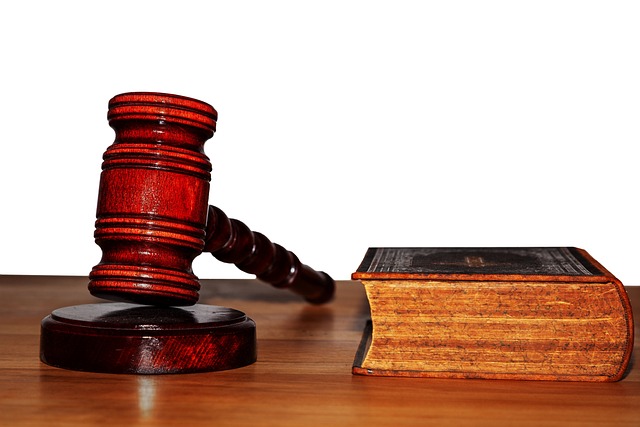Litigation Risk Management, a strategic process, relies heavily on effective jury selection to significantly influence trial outcomes. By assessing prospective jurors' backgrounds, experiences, and biases during voir dire, legal professionals can ensure an impartial jury panel. This crucial step is vital for maintaining the integrity of the justice system, minimizing risks in both corporate and individual cases, and achieving favorable outcomes. Diversity within juries is a strategic tool, promoting fairness and reducing litigation risk through broader perspectives on evidence and arguments. Post-verdict, successful management involves optimizing jury selection through research, screening, mock trials, and focus groups to mitigate future risks, especially in high-stakes cases.
Litigation Risk Management is a vital aspect of legal strategy, focusing on minimizing potential harms and maximizing favorable outcomes. This comprehensive guide delves into the intricate world of managing litigation risks, with a specific emphasis on how jury selection profoundly impacts trial results. From understanding the basics to exploring advanced strategies, we examine key elements like effective screening, managing bias, and post-verdict mitigation. By embracing these practices, legal professionals can navigate complex cases with confidence.
- Understanding Litigation Risk Management: A Comprehensive Overview
- The Role of Jury Selection in Shaping Trial Outcomes
- Strategies for Effective Jury Screening and Challenge
- Impact of Jury Bias and Diversity on Case Results
- Best Practices for Mitigating Litigation Risks Post-Verdict
Understanding Litigation Risk Management: A Comprehensive Overview

Litigation Risk Management is a strategic process that involves identifying, assessing, and mitigating potential risks associated with legal disputes. It’s a crucial component in navigating high-stakes cases, ensuring corporate and individual clients protect their interests effectively. This comprehensive approach encompasses various elements, one of which is jury selection, a critical aspect that significantly impacts trial outcomes.
A well-managed litigation process starts with meticulous jury selection procedures. The ability to choose an unbiased and suitable jury panel can make or break a case. In many trials, especially those involving complex matters, the outcome often hinges on how effectively each side selects and challenges jurors. Understanding How Jury Selection Impacts Trial Outcomes is essential for legal professionals; it allows them to employ strategies that avoid indictment and mitigate risks in both corporate and individual settings.
The Role of Jury Selection in Shaping Trial Outcomes

Jury selection plays a pivotal role in shaping the trajectory of trial outcomes, often determining the success or challenge faced by legal representatives in their pursuit of justice for their clients. This meticulous process involves sifting through potential jurors to find those who can provide an impartial and unbiased perspective on the case at hand. It’s not merely about choosing individuals; it’s about curating a jury that will fairly represent all stages of the investigative and enforcement process, ensuring a balanced hearing.
An effective jury selection strategy can significantly influence how a case unfolds. It involves delving into the backgrounds, experiences, and biases of prospective jurors to ensure their decisions are not clouded by preconceived notions or external influences. By carefully considering who sits in judgment, legal teams can enhance the chances of securing favorable outcomes, ensuring that their clients receive a fair trial—a cornerstone of any robust legal system.
Strategies for Effective Jury Screening and Challenge

Jury selection is a critical phase in litigation risk management that significantly impacts trial outcomes. Effective jury screening and challenge strategies are essential to ensuring a fair and impartial jury, which can greatly influence the perception and verdict of the case, especially in high-stakes cases involving corporate and individual clients. The process involves thorough examination of potential jurors to identify biases, prejudices, or conflicts that may affect their judgment.
Attorneys can employ various tactics during voir dire, such as asking detailed questions about personal experiences, exposures to media coverage related to the case, and any relationships with parties involved. These inquiries help uncover hidden biases and enable attorneys to make informed challenges for cause or peremptory challenges. The strategic use of these tools allows for the removal of jurors who may be less than objective, thereby enhancing the chances of a favorable outcome for the client. This meticulous approach is particularly vital in complex cases where the stakes are high, affecting not just corporate bottom lines but also individual liberties.
Impact of Jury Bias and Diversity on Case Results

The jury’s decision in a trial plays a pivotal role in determining the outcome of a case, making the selection process crucial. How Jury Selection Impacts Trial Outcomes lies in understanding potential biases and ensuring diversity. While the legal system strives for impartiality, historical and societal influences can inadvertently shape jurors’ perspectives. Biases based on race, gender, socio-economic status, or even prior experiences with similar cases can unconsciously influence their judgment. For instance, a study revealed that certain demographics may be more inclined to favor plaintiffs in personal injury lawsuits, potentially leading to different outcomes compared to identical cases tried by juries with differing compositions.
Diversity within the jury is, therefore, not just a matter of fairness but also a strategic consideration for effective litigation risk management. Incorporating representatives from various philanthropic and political communities can bring a range of perspectives, ensuring a more comprehensive evaluation of evidence and arguments presented during the trial. This inclusive approach may result in a complete dismissal of all charges or a more balanced decision-making process, ultimately reducing the overall litigation risk for both parties involved.
Best Practices for Mitigating Litigation Risks Post-Verdict

Post-verdict, effective litigation risk management involves a strategic approach to mitigating potential future risks. One key aspect is understanding and optimizing jury selection processes. The composition of a jury can significantly impact trial outcomes, particularly in high-stakes cases like white collar and economic crimes. Careful consideration should be given to ensuring a diverse yet impartial jury panel, as this can lead to more balanced and just verdicts.
Best practices include conducting thorough juror research and screening to identify any biases or conflicts. Additionally, utilizing innovative strategies such as mock trials and focus groups during jury selection can help anticipate potential issues. An unprecedented track record of successful litigation is a testament to these effective risk management practices, ensuring that future cases are handled with the utmost precision and skill.
Litigation Risk Management is a multifaceted process, from initial case assessment to post-verdict strategies. Understanding how jury selection impacts trial outcomes is key. Effective jury screening and challenge, along with recognizing and addressing bias and promoting diversity, can significantly influence the fairness and accuracy of verdicts. By implementing best practices throughout the litigation process, legal professionals can mitigate risks and achieve more favorable outcomes. This comprehensive approach ensures that justice is not only served but also perceived as such by all involved parties.






